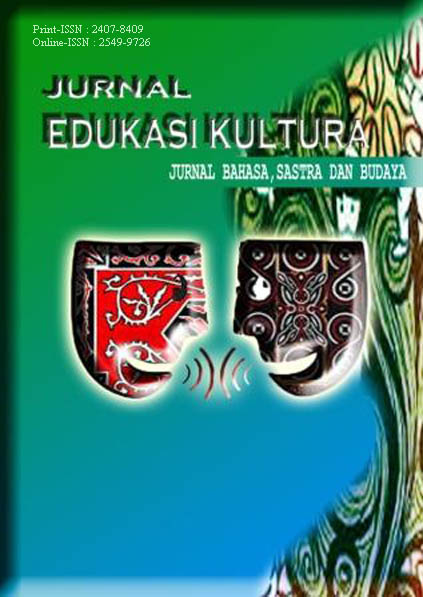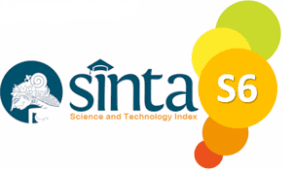Analisis Tantangan Guru dalam Penilaian Sikap Disiplin Siswa Kelas 2 di SD Negeri 060853 Medan
Keywords:
evaluasi ranah afektif, sikap disiplin, observasi kelas, kendala guru, pendidikan dasarAbstract
Discipline as part of the affective domain plays a crucial role in character evaluation for elementary students. This study describes the results of affective assessment focusing on the discipline attitudes of 2nd-grade students at SD Negeri 060853 Medan, observed on June 3, 2025, and identifies teachers’ challenges in conducting affective evaluations. A descriptive qualitative approach was used, with data collected through direct classroom observations and teacher interviews. Findings show many students exhibited undisciplined behavior. Teachers reported difficulty assessing the affective domain of discipline due to limited instruments and challenges in individual observation while teaching. These findings align with recent studies emphasizing the importance of affective evaluation for early character formation. Recommendations include developing a specific affective rubric for discipline and providing teacher training in attitude observation techniques. Keywords: affective evaluation, discipline attitude, classroom observation, teacher challenges, elementary educationReferences
Dessiane, S. T., & Kristin, F. (2021). Pengembangan Instrumen Penilaian Sikap Sosial Pembelajaran Tematik Kelas 4 SD. Jurnal Pendidikan Ilmu Pengetahuan Sosial Indonesia, 6(1), 2200–2211.
Hastuti, D. N. A. E., & Suyanti, S. (2022). Penilaian Karakter Disiplin Siswa SD di Kecamatan Nguntoronadi Kabupaten Magetan. Jurnal Jendela Pendidikan, 2(1), 75–84.
Huda, A. R., Yusnidar, D., & Suriadi, S. (2023). Pengembangan Instrumen Penilaian Sikap Disiplin Menggunakan Skala Likert di Madrasah Ibtidaiyah. Elementary School Journal of PGSD (ESJ-PGSD), 13(2), 136–151.
Isyrofirrahmah, B. N., & Manjani Nurhudayah. (2025). Pengaruh Guru dan Siswa terhadap Etika dan Kedisiplinan dalam Meningkatkan Hasil Belajar Siswa Kelas V di SD Negeri 060866 Pulo Brayan. Sindoro: Cendikia Pendidikan, 13(8).
Kuntoro, B., & Wardani, N. S. (2020). Pengembangan Instrumen Penilaian Sikap Sosial Pembelajaran Tematik Kelas III SD. Jurnal Ilmiah Wahana Pendidikan, 6(2), 163–175.
Lickona, T. N. (2004). Character Matters: How to Help Our Students Develop Good Character. New York: Simon & Schuster.
Pradana, F. A. P., & Mawardi. (2021). Pengembangan Instrumen Penilaian Sikap Disiplin Menggunakan Skala Likert dalam Pembelajaran Tematik Kelas VI SD. Fondati: Jurnal Pendidikan Dasar, 5(1), 13–29.
Sartika, D., Rahmita Siregar, E., Syurgaini, J., & Magdalena, I. (2023). Kendala Guru Sekolah Dasar dalam Memberikan Penilaian Sikap Siswa pada Proses Pembelajaran Kurikulum 2013 di SDN Gintung 1. Jurnal YASIN: Pendidikan dan Sosial Budaya, 3(4), 753–761.
Suryabrata, S. (2021). Metodologi Penelitian. Depok: RajaGrafindo Persada. (acuan metode penelitian kualitatif).
Published
How to Cite
Issue
Section
License
Copyright (c) 2025 Nur Fadilah Siregar, Azni Wildan, Ina Annafi’ah Telaumbanua, Rimma T Purba, Tutur Yohana Sagala, Nurhudayah Manjani

This work is licensed under a Creative Commons Attribution 4.0 International License.

This work is licensed under a Creative Commons Attribution 4.0 International License
Authors who publish with this journal agree to the following terms:
- Authors retain copyright and grant the journal right of first publication with the work simultaneously licensed under Creative Commons Attribution 4.0 International License that allows others to share the work with an acknowledgement of the work's authorship and initial publication in this journal.
- Authors are able to enter into separate, additional contractual arrangements for the non-exclusive distribution of the journal's published version of the work (e.g., post it to an institutional repository or publish it in a book), with an acknowledgement of its initial publication in this journal.Penulis.
- Authors are permitted and encouraged to post their work online (e.g., in institutional repositories or on their website) prior to and during the submission process, as it can lead to productive exchanges, as well as earlier and greater citation of published work (Refer to The Effect of Open Access).











